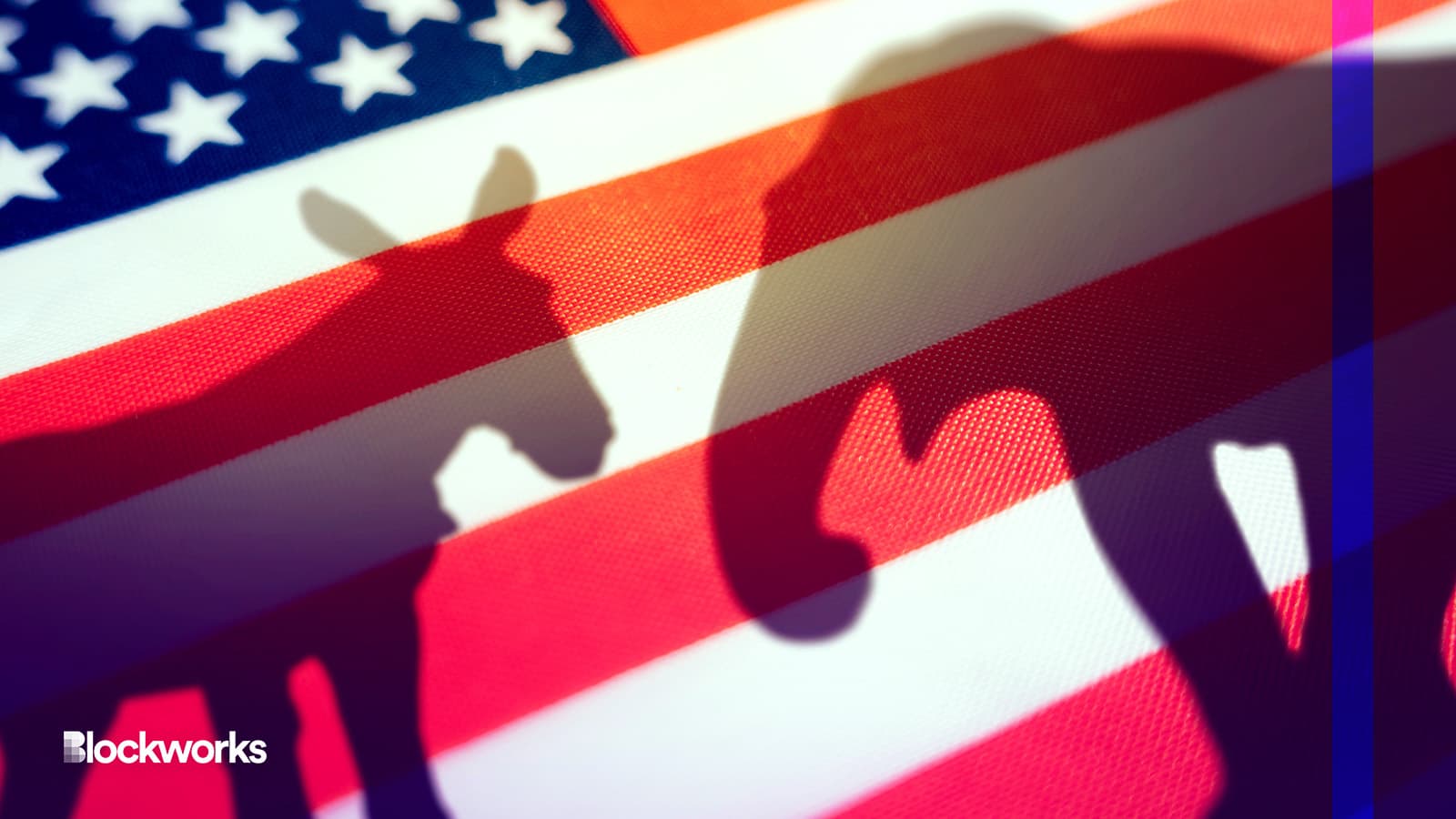Democrats, Republicans: Let Crypto Bring You Together
Crypto could actually give both political parties what they want, providing a middle ground for collaboration

diy13/Shutterstock modified by Blockworks
In today’s deeply polarized political environment, it is rare to find common ground between Democrats and Republicans on almost any issue.
However, there is an emerging technology that could bring these two sides together: blockchain, the foundation of digital assets and cryptocurrencies like Bitcoin and Ethereum.
To fully harness the potential of this groundbreaking technology, it is crucial that crypto legislation be crafted with bipartisan support. Cryptocurrency should provide a rare win-win in Washington.
The crypto industry needs legislation to provide regulatory clarity — and Congress needs a showing of bipartisanship to make that happen.
Finding common ground
At first glance, crypto may not seem like an area of common interest for the two parties, especially with a leading figure in the Democratic party raising an “anti-crypto army.”
Democrats tend to prioritize social equity, workers’ rights, and environmental protection, while Republicans generally advocate for limited government intervention, free markets, and individual liberties. However, a closer examination of what blockchain technology offers shows that it can actually appeal to both parties and their priorities.
For Democrats, blockchain technology has the potential to empower labor unions and protect workers’ rights.
By leveraging the transparency and security of blockchain, unions can develop tamper-proof voting systems, ensuring that every member’s voice is heard and respected. Additionally, blockchain can be used to create smart contracts that provide clear, enforceable terms for employment, reducing the possibility of exploitation and unfair practices. As a decentralized and trustless system, blockchain can also help to eliminate corruption within unions, giving workers greater confidence in their representatives.
On the other side of the aisle, Republicans can appreciate blockchain technology for its inherent decentralization and trustless environment. By removing the need for central authorities and intermediaries like big government, blockchain empowers individuals to conduct transactions directly with one another, fostering innovation and economic freedom. This reduced reliance on centralized institutions aligns with core Republican values of limited government intervention and individual autonomy.
It is essential that any crypto legislation be crafted with bipartisan cooperation. This will not only ensure that the resulting laws strike a balance between innovation and regulation, but also send a strong message that the United States is committed to leading the way in the blockchain revolution without sacrificing consumer protection.
As the two parties come together to develop comprehensive crypto legislation, it is important to consider several key ideas. While Republicans and Democrats may prioritize each issue differently (e.g., Republicans and competitiveness; Democrats and inclusivity), it is imperative that legislation prioritizes each principle equally.
- Preserving U.S. competitiveness: Bipartisan collaboration on cryptocurrency and blockchain legislation can keep the US at the forefront of financial innovation. There needs to be a balance of Republican principles of narrowly tailored light-touch regulation to attract businesses with Democrat’s desires for government policies that help retain talent as well as protect consumers.
- Foster Inclusivity: Crypto and blockchain technology will not solve the broad issue of financial inclusion. However, these technologies provide an option to increase access and opportunities for wealth creation for those who face accessing traditional financial services. Legislation can bridge the gap between the unbanked and traditional financial services by balancing Republicans’ desire to embrace private sector innovation with Democrats’ advocacy for policies that ensure equal access and address the digital divide.
- Preserve National Security: If the U.S. continues to delay creating rules and regulations, the rules will be made for us. Technology that can impact that way we transact should not be shunned, but instead embraced and innovated incessantly. Ensuring national security in the context of cryptocurrency requires a united approach, made possible by utilizing Republican’s focus on preventing illicit activities such as money laundering and terrorism financing, and Democrat’s emphasis on international cooperation and integrating digital assets into existing regulatory frameworks.
By working together, Democrats and Republicans can craft balanced, effective crypto legislation that harnesses the transformative power of blockchain technology for the benefit of all Americans without sacrificing consumer protection. In doing so, both parties will not only foster innovation and economic growth, but also demonstrate that it is still possible to find common ground in today’s divided political landscape.
Get the news in your inbox. Explore Blockworks newsletters:
- The Breakdown: Decoding crypto and the markets. Daily.
- 0xResearch: Alpha in your inbox. Think like an analyst.






